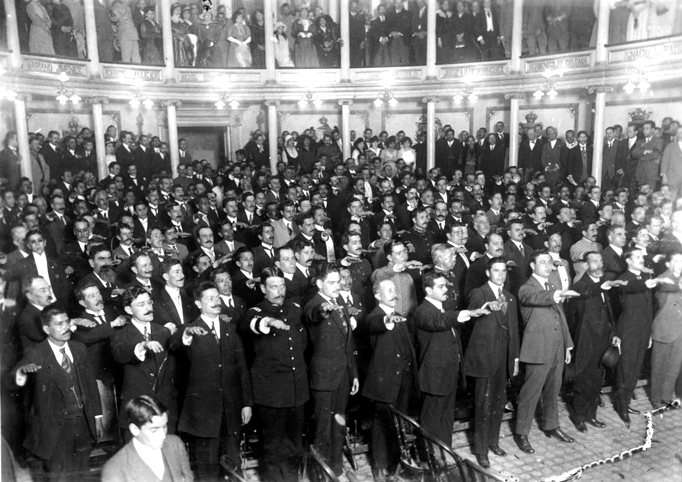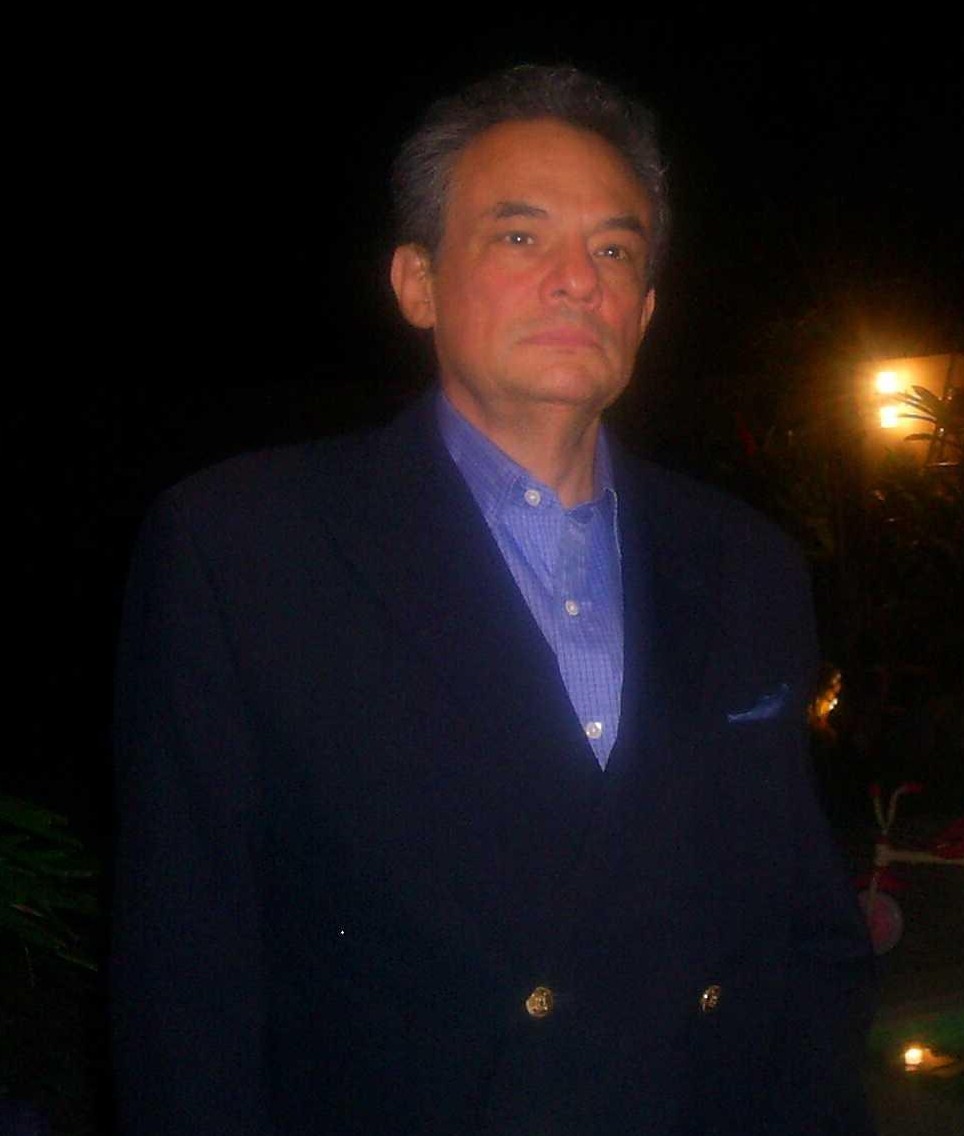|
Y Tú También Llorarás
"Y Tú También Llorarás" () is a ballad written and produced by British singer-songwriter Albert Hammond, co-written by Anahí van Zandweghe, and performed by Venezuelan singer-songwriter and actor José Luis Rodríguez "El Puma". It was released as the first single from his studio album '' Señor Corazón'' (1987). This song became his first number one hit in the ''Billboard'' Hot Latin Tracks chart, and was later covered by Raulín Rosendo. The song debuted on the ''Billboard'' Hot Latin Tracks chart at number 24 on 7 November 1987 and climbed to the top of the chart four weeks later. It spent six weeks at number-one, replacing " Qué No Se Rompa la Noche" by Spanish performer Julio Iglesias and being replaced by " Soy Así" by Mexican performer José José José Rómulo Sosa Ortiz (17 February 1948 – 28 September 2019), known professionally as José José, was a Mexican singer. Also known as ''El Príncipe de la Canción'' (The Prince of Song), his performance an ... [...More Info...] [...Related Items...] OR: [Wikipedia] [Google] [Baidu] |
José Luis Rodríguez (singer)
José Luis Rodríguez González (; January 14, 1943), nicknamed ''El Puma'' ("The Cougar"), is a Venezuelan singer and actor who is known for having recorded many international super hits and participated in a handful of telenovelas. He has also served as a coach and mentor on the Peruvian, Argentinian, and Chilean versions of '' The Voice'', as well as a judge on '' The X Factor Chile''. Life and career José Luis Rodríguez was born in Caracas, Venezuela to José Antonio Rodríguez from the Canary Islands, Spain and Ana González a Venezuelan housewife. He lost his father at the age of six, and was raised by his mother (an illiterate then, learned to read as an adult to read the Bible) along with 11 brothers and sisters. He grew up in very modest conditions, having to shine shoes, and pack bags in a supermarket for a living at an early age. Without an academic formation, he shaped himself as a singer and actor by empirical means. As his mother participated in the revolt aga ... [...More Info...] [...Related Items...] OR: [Wikipedia] [Google] [Baidu] |
Mexican People
Mexicans () are the citizens and nationals of the Mexico, United Mexican States. The Mexican people have varied origins with the most spoken language being Spanish language, Spanish, but many also speak languages from 68 different Languages of Mexico, Indigenous linguistic groups and other languages brought to Mexico by expatriates or recent immigration. In 2020, 19.4% of Mexico's population identified as Indigenous peoples of Mexico, Indigenous. There are currently about 12 million Mexican nationals residing outside Mexico, with about 11.7 million living in the United States. The larger Mexican diaspora can also include individuals that trace ancestry to Mexico and self-concept, self-identify as Mexican but are not necessarily Mexican citizenship, Mexican by citizenship. The United States has the largest Mexican population in the world after Mexico at 10,918,205 in 2021. The modern nation of Mexico achieved independence from the Spanish Empire in 1821, after a decade-long war ... [...More Info...] [...Related Items...] OR: [Wikipedia] [Google] [Baidu] |
Songs In Spanish
A song is a musical composition performed by the human voice. The voice often carries the melody (a series of distinct and fixed pitches) using patterns of sound and silence. Songs have a structure, such as the common ABA form, and are usually made of sections that are repeated or performed with variation later. A song without instruments is said to be a cappella. Written words created specifically for music, or for which music is specifically created, are called lyrics. If a pre-existing poem is set to composed music in the classical tradition, it is called an art song. Songs that are sung on repeated pitches without distinct contours and patterns that rise and fall are called chants. Songs composed in a simple style that are learned informally by ear are often referred to as folk songs. Songs composed for the mass market, designed to be sung by professional singers who sell their recordings or live shows, are called popular songs. These songs, which have broad appeal, a ... [...More Info...] [...Related Items...] OR: [Wikipedia] [Google] [Baidu] |
Songs Written By Albert Hammond
A song is a musical composition performed by the human voice. The voice often carries the melody (a series of distinct and fixed pitches) using patterns of sound and silence. Songs have a structure, such as the common ABA form, and are usually made of sections that are repeated or performed with variation later. A song without instruments is said to be a cappella. Written words created specifically for music, or for which music is specifically created, are called lyrics. If a pre-existing poem is set to composed music in the classical tradition, it is called an art song. Songs that are sung on repeated pitches without distinct contours and patterns that rise and fall are called chants. Songs composed in a simple style that are learned informally by ear are often referred to as folk songs. Songs composed for the mass market, designed to be sung by professional singers who sell their recordings or live shows, are called popular songs. These songs, which have broad appeal, are oft ... [...More Info...] [...Related Items...] OR: [Wikipedia] [Google] [Baidu] |
José Luis Rodríguez (singer) Songs
José Luis Rodríguez may refer to: * José Luis Rodríguez Vélez (1915–1984), Panamanian musician *José Luis Rodríguez (singer) (born 1943), ''El Puma'', Venezuelan singer and actor *José Luis Rodríguez Zapatero (born 1960), former Prime Minister of Spain (2004–2011) *José Luis Rodríguez (footballer, born 1963), ''El Puma'', former Argentine football striker * José Luis Loreto (José Luis Rodríguez Loreto, born 1971), former Spanish football striker * José Luis Rodríguez Pittí (born 1971), Panamanian writer, documentary photographer, and computer systems engineer * José Luis Rodríguez Aguilar (born 1994), Chilean cyclist *José Luis Rodríguez (footballer, born 1997), Uruguayan footballer *José Luis Rodríguez (footballer, born 1998) José Luis Rodríguez Francis (born 19 June 1998), commonly known as Puma, is a Panamanian professional footballer who plays as a left winger for Juárez and the Panama national team. Personal life Rodríguez grew up in El Cho ... [...More Info...] [...Related Items...] OR: [Wikipedia] [Google] [Baidu] |
1987 Songs
Events January * January 1 – Bolivia reintroduces the Boliviano currency. * January 2 – Chadian–Libyan conflict – Battle of Fada: The Military of Chad, Chadian army destroys a Libyan armoured brigade. * January 3 – Afghan leader Mohammad Najibullah says that Afghanistan's 1978 Communist revolution is "not reversible," and that any opposition parties will have to align with Communist goals. * January 4 – ** 1987 Maryland train collision: An Amtrak train en route from Washington, D.C. to Boston collides with Conrail engines at Chase, Maryland, United States, killing 16 people. ** Televangelist Oral Roberts announces to his viewers that unless they donate $8 million to his ministry by March 31, God will "call [him] home." * January 15 – Hu Yaobang, General Secretary of the Chinese Communist Party, is forced into retirement by political conservatives. * January 16 – León Febres Cordero, president of Ecuador, is kidnapped for 11 hours by followers of imprisoned ... [...More Info...] [...Related Items...] OR: [Wikipedia] [Google] [Baidu] |
Hot Latin Tracks
The ''Billboard'' Hot Latin Songs (formerly Hot Latin Tracks and Hot Latin 50) is a record chart in the United States for Latin songs, published weekly by ''Billboard'' magazine. Since October 2012, chart rankings are based on digital sales, radio airplay, and online streaming, and only predominantly Spanish-language songs are allowed to rank. The chart was established by the magazine on September 6, 1986, and was originally based on airplay on Latin music radio stations. Although the chart predominantly allows Spanish-language songs, songs in English and Portuguese have charted. The first number one song of the Hot Latin Songs chart was " La Guirnalda" by Rocío Dúrcal on September 6, 1986. As of the issue dated June 14, 2025, the chart has had 466 different number one hits, while 192 artists have reached number one (as a lead or a featured act). The current number-one song on the chart is "DTMF" by Bad Bunny. History On September 6, 1986, ''Billboard'' premiered a Latin m ... [...More Info...] [...Related Items...] OR: [Wikipedia] [Google] [Baidu] |
Hot Latin Tracks Year-End Chart Of 1988
The year-end charts for the Hot Latin Songs chart are published in the last issue of ''Billboard'' magazine every year. Initially, the chart was based on information provided by Nielsen Broadcast Data Systems, which collected airplay information from Latin radio stations in the United States. On the week ending October 20, 2012, the methodology was changed to track the best-performing Spanish-language songs based on digital downloads, streaming activity, and airplay from all radio stations in the country. The Year-End charts represent aggregated numbers from the weekly charts that were compiled for each artist, song and record company. Mexican singer-songwriters Ana Gabriel and Juan Gabriel have had the best-selling single of the year three times each. The Latin Academy of Recording Arts & Sciences awarded Juan Gabriel the Person of Year Award for his professional accomplishments and commitment to philanthropic efforts. Venezuelan singer Franco De Vita's "Te Amo" ranked at number ... [...More Info...] [...Related Items...] OR: [Wikipedia] [Google] [Baidu] |
José José
José Rómulo Sosa Ortiz (17 February 1948 – 28 September 2019), known professionally as José José, was a Mexican singer. Also known as ''El Príncipe de la Canción'' (The Prince of Song), his performance and vocal style have influenced many Latin pop artists in a career that spanned more than four decades. Due to his vocals and popularity, José José was considered by Latin audience and media as an icon of Latin pop music and one of the most emblematic Latin singers of his time. Born into a family of musicians, José began his musical career in his early teens playing guitar and singing in serenade. He later joined a jazz and bossa nova trio where he sang and played bass and double bass. José José found success as a solo artist in the early 1970s. Demonstrating his tenor vocal ability with a stunning performance of the song " El Triste" at a Latin music festival held in Mexico City in 1970, he climbed the Latin charts during that decade. Having achieved recognition as ... [...More Info...] [...Related Items...] OR: [Wikipedia] [Google] [Baidu] |
Soy Así (song)
"Soy Así" ("I Am Like This") is a Ballad (music), ballad written and produced by Spanish people, Spanish composer Rafael Pérez-Botija and performed by Mexican people, Mexican singer José José. It was released as the first single from his twenty fourth studio album Soy Así, of the same title (1987). This song became the second number-one single by the artist in the Hot Latin Songs, ''Billboard'' Hot Latin Tracks chart, after the single "¿Y Quién Puede Ser?" two years before. In 2005, Mexican singer Valentín Elizalde recorded a cover version of the single and included it on his album of the same name. Background "Soy Así" was written and produced by Rafael Pérez-Botija, who worked previously with José José on the albums ''Volcán (album), Volcán'' (1978), ''Si Me Dejas Ahora'' (1979), ''Amor Amor (José José album), Amor, Amor'' (1980), ''Gracias (album), Gracias'' (1981), ''Mi Vida'' (1982), ''Reflexiones (José José album), Reflexiones'' (1984), and ''Promesas'' (1985 ... [...More Info...] [...Related Items...] OR: [Wikipedia] [Google] [Baidu] |



